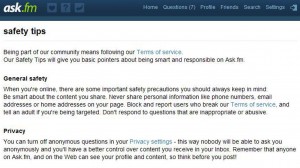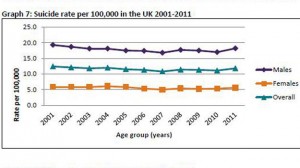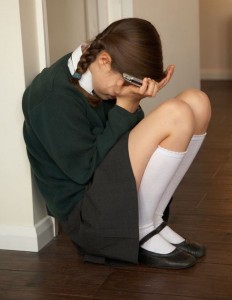The National Society for the Prevention of Cruelty to Children (NSPCC) and anti-bullying charity BeatBullying have urged young people to speak out against cyberbullying, after a teenage schoolgirl was found dead in her home, following a series of abusive messages on the Ask.fm website.
Hannah Smith, 14, was found hanged at her home in Lutterworth, Leicestershire, yesterday. Messages found on her Ask.fm account show how trolls told her to “drink bleach”, “go get cancer” and “go die”. Her parents are now calling for Ask.fm to be closed down before any more tragedies occur.
Commenting on the news, Peter Wanless, CEO of the NSPCC, described this as a tragic case, where Hannah felt like she had no other option but to end her life.
“The cruel nature of cyberbullying allows perpetrators to remain anonymous and hide behind their screens. This is something that must be tackled before it gets out of hand. We must ensure young people have the confidence to speak out against this abuse, so that they don’t feel isolated and without anywhere to turn,” Wanless told the Telegraph.
He added that, over the last year, ChildLine has carried out 4,507 counselling sessions with young people who were concerned about cyberbullying – an 87 per cent rise in contacts about this concern from the previous year.
“Young people are feeling increasingly desperate, and in many cases suicidal, as a result of the abusive comments they are victim to,” he said.
Ask.fm has been heavily criticised by anti-bullying charities because it allows users to post anonymous comments or questions – often of a sexual or insulting nature – on the pages of children as young as 13.
Some child safety experts have even described it as a “stalker’s paradise” and an online petition has been set up demanding action is taken.
However, simply closing down individual sites is not in itself an answer to the problem of cyberbullying.
The NSPCC said that parents need to talk to their children about the dangers posed by the internet, and tell them what they should do if they become worried or concerned. They should also explain that anything shared online or by mobile phone could end up being seen by anyone.
Any computer used by a child should be in a place where the whole family can see it, not out of sight in a bedroom, and parents should also use filtering software to block inappropriate sites, said the NSPCC.
Meanwhile, Campaign group BeatBullying has put together a list of five tips to help children stay safe online:
1. Save and print out any bullying messages, posts, pictures or videos you receive. Make a note of the dates and times, along with any details you have about the sender’s ID and the URL.
2. Always report anything abusive you see online to the site concerned. Flag it, report it, or talk to someone about it.
3. Never respond or retaliate, as this can just make things worse. Instead, block any users that send you nasty messages.
4. Think very carefully before posting photos of yourself online. Remember that once your picture is online, anyone can download it and share it or even change it.
5. And lastly, don’t pass on cyberbullying videos or messages about other people. Don’t just ignore it. If you see cyberbullying going on, report it and offer your support.












